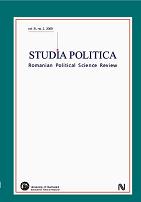”Subcontracting” Nation-Building: The Foreign Prince in the Romanian Parliament, 1866-1867
”Subcontracting” Nation-Building: The Foreign Prince in the Romanian Parliament, 1866-1867
Author(s): Silvia MartonSubject(s): Politics / Political Sciences
Published by: Editura Universităţii din Bucureşti
Keywords: Nation-building; state-building; representation; historicism; Romania
Summary/Abstract: The paper starts from the assumption that 1866 – the year a foreign prince is invited to the Romanian throne and a constitutional government is introduced – elevates to the rank of state ideology the discourse of the ”unitary nation” that immediately becomes the hegemonic narrative. As early as 1866, at the dawn of mass politics in Romania, the parliamentarians compensate for the late and weak statehood (with internal challenges and separatist movements, and difficult international acknowledgment) with the patriotic rhetoric of national brotherhood and the exclusivist appraisal of ”Romanianness”. The first part examines the foundations of the new regime, by drawing comparisons with Greece. In May-June 1866 Romania condenses Greece’s experience from March 1844 to March 1864. In both cases, the foreign prince from a European royal family (respectively Karl Ludwig von Hohenzollern-Sigmaringen and Otto von Wittelsbach, Prince of Bavaria) is considered the price to pay in order to gain the foreign powers’ protection and their support for obtaining political autonomy, if not yet independence from the Porte. Some of the main questions asked are: to what extent the new prince is ready to accept de facto and de jure the contractual nature of the Constitution? What is the meaning of the ”Constitution” for both the parliamentarians and Charles I (the name taken by the von Hohenzollern as ruling Prince of Romania)? Who is the holder of the pouvoir constituant in 1866? Why is the reference to the autochthonous constitutional tradition absent in 1866? How to explain the xenophobic arguments of the parliamentarians who oppose the foreign prince? The second part of the paper examines three of the first major pieces of legislation adopted during the first parliamentary session of 1866-1867 – on the new national currency, national day and coat of arms – in order to integrate the foreign Prince and his dynasty into the national narrative and imaginary, and to make visible the signs of state autonomy.
Journal: Studia Politica. Romanian Political Science Review
- Issue Year: 9/2009
- Issue No: 2
- Page Range: 229-257
- Page Count: 29
- Language: English

